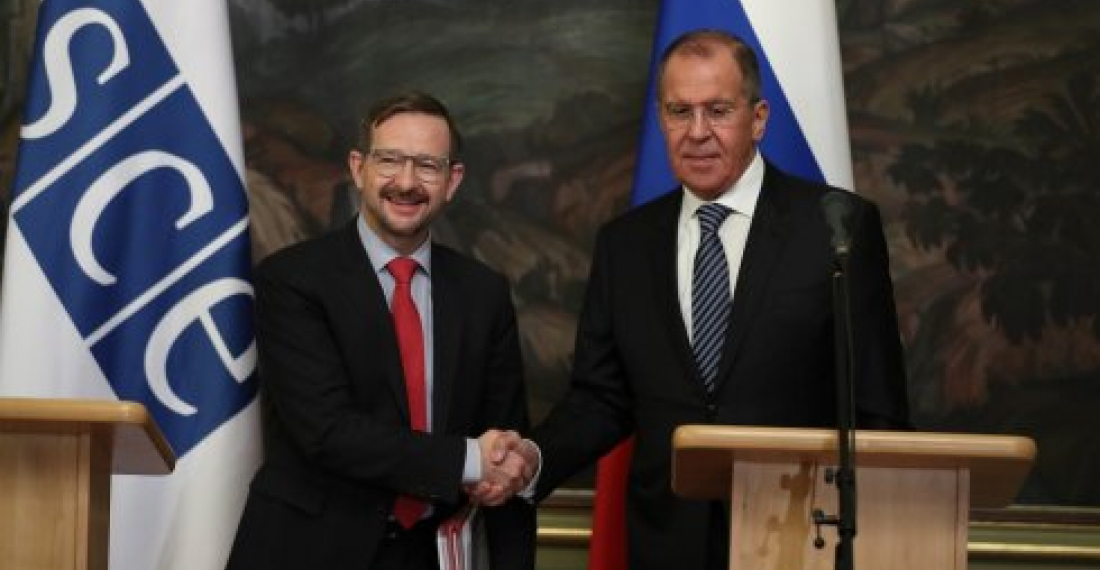Министр иностранных дел России Сергей Лавров заявил, что прогресс в переговорах по урегулированию нагорно-карабахского конфликта очень маловероятен, пока внутриполитическая ситуация в Армении остается неурегулированной.
Лавров отвечал на вопрос журналиста в Москве после встречи с генеральным секретарем Организации по безопасности и сотрудничеству в Европе Томасом Гремингером.
Лавров сказал, что Россия является одной из трех стран, которые являются сопредседателями Минской группы ОБСЕ, и именно в этом формате в последние годы были предприняты довольно активные усилия по поиску путей разрешения нагорно-карабахского конфликта.
"Насколько я знаю, договоренность, достигнутая в ходе душанбинской встречи исполняющего обязанности Премьер-министра Армении Н.Пашиняна и Президента Азербайджана И.Алиева, заключалась в том, что контакты нужно продолжать, что министры иностранных дел двух стран будут встречаться, что Армения и Азербайджан готовы работать с сопредседателем Минской группы ОБСЕ. Мы такую договоренность приветствуем, хотя, конечно, понимаем, что, пока достаточно бурные внутриполитические процессы в Армении, которые мы сейчас наблюдаем, не завершатся, едва ли будет возможно всерьез рассматривать конкретные варианты выхода из этого кризиса и обеспечения полноценного нагорно-карабахского урегулирования.
Хотя контакты в процессе подготовки к внеочередным парламентским выборам, которые пройдут в Армении в декабре, намечены. Сопредседатели посещают регион, встречаются с руководством, министрами иностранных дел Армении и Азербайджана. Поддержание таких контактов важно для того, чтобы можно было, как только позволят обстоятельства, заняться серьезным рассмотрением вопросов, связанных с урегулированием кризиса."
Лавров также прокомментировал возможное участие руководства самопровозглашенной Нагорно-Карабахской Республики в переговорах:
"Что касается многократных заявлений Н.Пашиняна о необходимости привлечь нагорно-карабахскую сторону к переговорам, мы уже комментировали их. Это вопрос, который должен решаться самими сторонами конфликта. В свое время карабахские представители участвовали в переговорах Баку и Еревана. По предложению армянского руководства эта практика была изменена, и переговоры уже много лет ведутся напрямую только между Арменией и Азербайджаном. Разумеется, мы исходим из того, что Ереван в своих переговорных позициях учитывает подходы Карабаха, но для того чтобы менять нынешний двусторонний формат, требуется согласие обеих сторон. Насколько мы знаем, такого согласия нет. Я бы не стал выдвигать предварительные условия, чтобы начать рассматривать сущностный вопрос нагорно-карабахского урегулирования."
источник: commonspace.eu по материалам пресс-службы МИД РФ.
фото: Министр иностранных дел России Сергей Лавров и Генеральный секретарь ОБСЕ Томас Гермингер на встрече в Москве, 2 ноября 2018 года.






